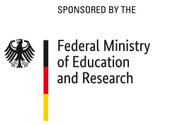The goal of HP-DLF is to provide researchers and developers in the "deep learning" domain an easy access to current and future high-performance computing systems. For this purpose, a new software framework will be developed, which automates the highly complex parallel training of large neural networks on heterogeneous computing clusters. The focus is on scaling and energy efficiency, as well as high portability and user transparency. The goal is to scale the training of networks designed in existing frameworks, without additional user effort, over a three-digit number of compute nodes.
Partners
- Fraunhofer-Institut für Techno- und Wirtschaftsmathematik (ITWM: Konsortialleitung)
- Technische Universität Dresden, Zentrum für Informationsdienste und Hochleistungsrechnen (ZIH)
- Universität Heidelberg, Visual Learning Lab (VLL)
- Deutsches Forschungszentrum für Künstliche Intelligenz (DFKI)


